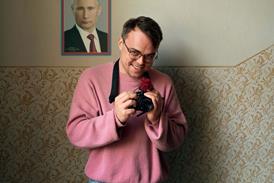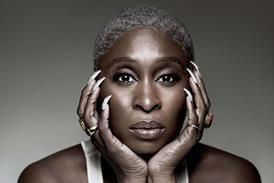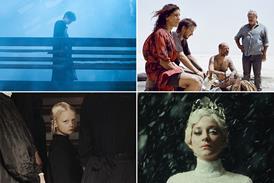Dir: Hermine Huntgeburth.Ger. 2005. 132mins.
Hermine Huntgeburth's TheWhite Masai (Die Weisse Massai) is much less good than it shouldhave been. True, it's handsomely and expensively mounted, beautifully andrigorously shot in an extremely photogenic Kenya, and has a political andcultural heart that is decidedly in the right place. But at two hours-plus itrarely ' and only mostly near the end - reaches the dramatic and emotionalheights it needs to sustain audience involvement.
No one would dare call it abad film, but, torn as it is between drama and ethnography, it ultimately failson both counts.
With some judicious editingof the often fascinating but laborious setting-up of the dramatic premises,this potentially audience-friendly film could do well in art film venues afterits current success at home in Germany. Festival programmers in the market fora sensitive film about cross-cultural relations would also be advised to have alook.
Based on a true story, thefilm tells the story of Carola (Hoss), a young Swiss woman, on holiday in Kenyawith her boyfriend Stephen (Rieke). There she becomes attracted to Lemalian(Ido), a gorgeous Masai warrior in full regalia, who they meet on a ferry.
Throwing caution to thewind, she abandons her Swiss boyfriend as they're about to board the flighthome and goes off in search of Lemalian, who has returned to his village.Hearing that she is looking for him, he comes to claim her and takes her backto his village with him.
The remainder of the filmdetails the never-ending battle between the many cultural differences thatdivide the pair and the deep love that they obviously share.
Huntgeburth earned her wingsproducing a host of films for TV, so don't look here for a deep examination of,say, what a black warrior might mean, on a host of different levels, to a whiteEuropean. Rather The White Masai is all about uncomplicated butall-encompassing love at first sight - though the sex, once Carola convincesLemalian to slow down a bit, is pretty awesome as well.
Furthermore, the problemsthat arise between the pair - especially when she decides to open a shop - arethe usual ones associated with the endemic male pride of any patriarchalculture clashing with an independent-minded European female.
The film does show the sometimesbull-headed Carola in a slightly negative light, as when she foolishly rebels,according to a local priest, against the local custom of female genitalmutilation of young teens. But the film is so wrapped up in her perspectivethat she gets off easy and the moral dilemma is never probed that deeply.
Huntgeburth is obviouslyfascinated by Lemalian's culture and manages to involve the audience, and alsodoes an excellent job at conveying the pulse of African urban and rural life.But perversely at the very end, when there is something finally at stake, itall suddenly seems strangely uninvolving.
One huge problem are thefilm's many languages. Lemalian and Carola speak to one another in English and,presumably to accommodate mono-lingual audiences in Germany, Switzerland, andAustria, Carola annoyingly repeats, in German, all the important plot pointsLemalian's has just outlined.
Even worse, the Africandialogue from apparently sympathetic figures like Lemalian's mother (or anyoneelse in the village for that matter) is never translated, so they remain at abothersome emotional distance throughout.
It would undoubtedly havebeen too cumbersome to subtitle their dialogue, but it nevertheless creates acrucial psychological gap between the audience and the Africans.
Carola does occasionallyspeak to an Italian priest, who conveniently speaks German, and this allowssome very welcome outside perspective on what's going on. But a greater use ofCarola's only very occasional voiceover comments would have helped us tounderstand at least her character a little better.
Production companies
Constantin Film Produktion
German distributor
Constantin Film
International sales
Beta Cinema
Producer
Gunter Rohrbach
Screenplay
Johannes W Betz
from the novel by Corinne Hofmann
Cinematography
Martin Langer
Editor
Eva Schnare
Production design
Susann Bieling
Uwe Szielasko
Music
Niki Reiser
Main cast
Nina Hoss
Jacky Ido
Katja Flint
Nino Prester
Janek Rieke

















No comments yet